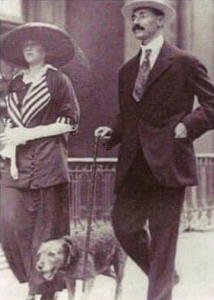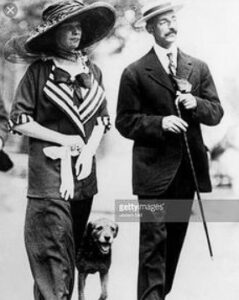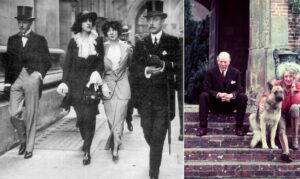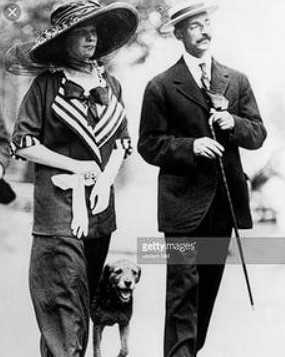The sinking of the Titanic in 1912 remains one of the most infamous maritime disasters in history. While much has been written about the ship’s grandeur and tragic fate, less attention is given to the extraordinary acts of bravery displayed by its passengers. Among them were some of the wealthiest and most influential individuals of the time, who chose morality over survival. Their selfless actions continue to inspire generations, proving that true wealth lies in integrity and compassion.
The Final Hours of John Jacob Astor IV
A Fortune That Could Build 30 Titanics
John Jacob Astor IV, one of the richest men aboard the Titanic, had a fortune that could have financed 30 replicas of the great ship. As a prominent businessman and real estate mogul, he was among the elite who enjoyed the lavish accommodations of the first-class cabins. Yet, when disaster struck, his priorities shifted from personal survival to helping others.

A Last Act of Heroism
As panic spread across the decks, Astor ensured that his young wife, Madeleine, safely boarded a lifeboat. He then stepped back, refusing to use his wealth or status to secure his own escape. Instead, he gave up his place to save two frightened children, embodying the very essence of selflessness. His body was later recovered, a reminder of a man who valued honor over life itself.
Isidor and Ida Straus: A Love Story in Tragedy
“I Will Never Enter a Lifeboat Before Other Men”
Isidor Straus, co-owner of Macy’s, was another millionaire aboard the Titanic. Despite his immense fortune and influence, he remained steadfast in his principles. When offered a seat in a lifeboat, he refused, stating firmly, “I will never enter a lifeboat before other men.” His words captured the essence of chivalry and courage in the face of certain death.
A Wife’s Unwavering Devotion
Ida Straus, his devoted wife, was given a seat in a lifeboat but declined. Instead, she handed her spot to her maid, Ellen Bird, ensuring her safety. Choosing love over life, she stayed with her husband, standing by his side as the ship disappeared beneath the waves. Their final moments were a testament to enduring love and self-sacrifice.

The Wealthy Who Chose Principle Over Survival
The Code of Honor Among Titanic’s Elite
In an era where social class dictated much of life’s course, the actions of these wealthy individuals shattered expectations. Instead of leveraging their status for personal gain, they chose to uphold values of courage, fairness, and sacrifice. Their decisions illuminated the stark contrast between material wealth and moral wealth.
The Legacy of Their Choices
The heroic actions of Astor, Straus, and others challenge the perception that wealth breeds selfishness. Their choices demonstrated that true nobility is measured not by one’s riches, but by one’s character. Their legacies serve as powerful reminders that even in moments of desperation, humanity can shine its brightest.
The Titanic’s Tragedy: A Reflection on Human Nature
The Best and Worst of Humanity
The Titanic disaster revealed both the highest and lowest facets of human nature. While some resorted to desperate measures for survival, others displayed extraordinary courage and generosity. The contrast between fear-driven actions and selfless sacrifices offers profound insights into the complexities of human behavior.

Lessons for Future Generations
The stories of Titanic’s unsung heroes continue to inspire discussions on ethics, responsibility, and compassion. Their actions serve as a timeless reminder that integrity and kindness hold greater value than wealth and privilege. By remembering their bravery, we preserve the true spirit of humanity amid adversity.
Conclusion: A Legacy Beyond the Ocean Depths
The Titanic’s sinking was more than a maritime catastrophe—it was a moment in history that revealed the boundless capacity of human courage and self-sacrifice. John Jacob Astor IV, Isidor, and Ida Straus, among others, left behind a legacy not of wealth, but of unwavering moral strength. Their final choices echo across time, reminding us that in life’s most critical moments, the measure of a person is not found in their fortune, but in their heart.

